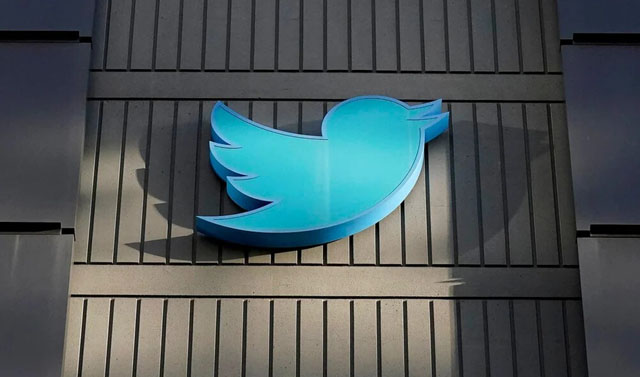
SAN FRANCISCO, June 23, 2023 (BSS/AFP) - The EU's top tech enforcer warned Elon Musk on Thursday that Twitter must have enough resources to moderate dangerous content by August 25 or risk being in violation of the bloc's landmark rules to rein in big tech.
"If the technology is not ready they need to have enough resources to match the gap. I spoke on this specific topic with Elon Musk," EU commissioner Thierry Breton told reporters following a meeting at Twitter headquarters, which included the platform's new CEO Linda Yaccarino.
Breton said he told the Twitter team, with Musk joining by videoconference from New York, that "there are a few areas that will be critical immediately when the regulation will be enforceable."
This would be "especially everything related to child abuse which is a very hot topic for us in Europe, also disinformation in elections," Breton said.
The commissioner's two-day visit to San Francisco came just weeks before the European Union's Digital Service Act (DSA) comes into full force for the world's biggest platforms, including Meta's Facebook and Instagram, as well as TikTok and Twitter.
The former French finance minister will also meet with Meta's Mark Zuckerberg to discuss the new rules.
But all eyes are on Musk, who since taking ownership of Twitter has, often abruptly, modified many rules about what language is allowed on the site, even if it is found offensive or delivers hate and misinformation -- in direct opposition to the EU's new rules.
Breton's meeting at Twitter was part of what the EU called a "stress test" to gauge whether the platform was ready to meet the new rules, despite a massive wave of layoffs since Musk took it over.
TikTok has also accepted to undergo a stress test in July, as the Chinese-owned app fights off fears that it is potentially under the domination of the Chinese Communist party in Beijing.
On a visit to Paris last week, Musk said he had every intention of meeting the demands of the DSA, an ambition that the EU welcomed.
But with Twitter's payroll cut to the bone and content moderation teams decimated, observers doubt whether Musk is in a position to stand by his commitment.
- 'I am the regulator' -
"I'm not here to tell the company what they have to do. I am the regulator and have to tell them what is the law," Breton said.
The DSA is one of the most ambitious legislations on controlling online content since the advent of social media, putting major obligations on how the world's biggest platforms deal with the free flow of speech.
Like the EU's General Data Protection Regulation, the DSA is expected to become a global benchmark as governments worldwide struggle to find ways to rein in the excesses of social media.
To meet the new rules, Twitter, Meta, TikTok and other platforms will have to invest heavily on building compliance teams at a time when big tech companies have been cutting staff, including their content moderation workforce.
Under the DSA, 19 platforms have been designated as "Very Large Online Platforms," which will be subject to specially designated rules beginning on August 25.
The regulations also require Meta, Twitter and others to provide officials and researchers unprecedented access to their algorithms and content decisions.
This will be especially a challenge for Meta, which since the 2018 Cambridge Analytica data breach scandal has severely limited access to data for third parties, said Yoel Roth, the former head of Trust and Safety at Twitter, who is now a Technology Policy Fellow at UC Berkeley.
And in a hunt to make money, Twitter and Reddit have also cut off access to data by charging high fees for outsiders -- including researchers -- to have access to their data through something called APIs, that were free until recently.
The wide-ranging DSA has many other provisions, including an obligation that platforms designate a representative in the EU who would be responsible for content matters.
Users will also be handed unprecedented rights to lodge an appeal when subjected to takedown orders by a platform.
Major violations of DSA rules could see tech giants slapped with fines as high as six percent of annual turnover and, if violations persist, be banned outright from the EU as a last resort measure.